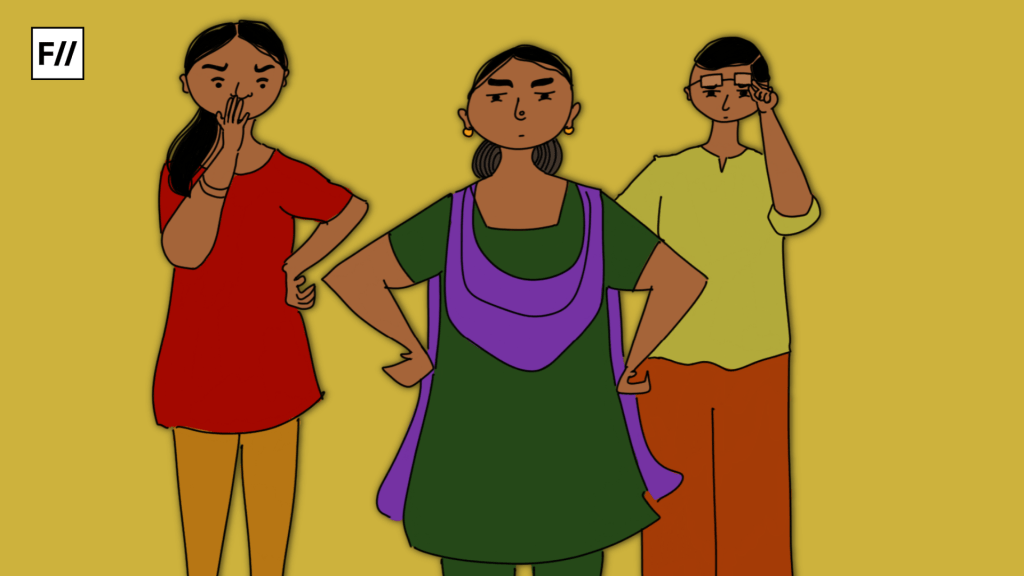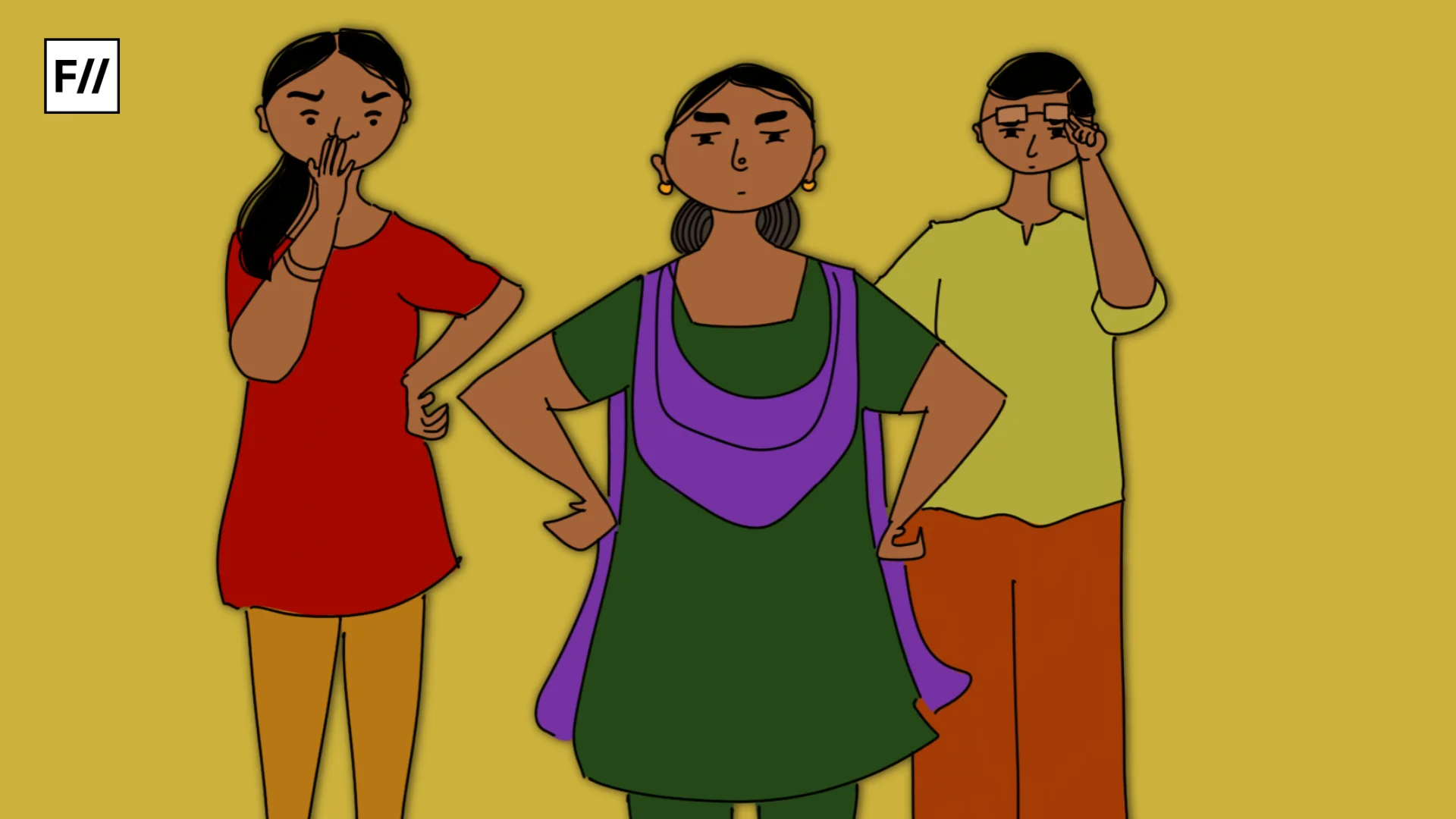Ismat Chughtai’s story “All for a Husband” is a brilliant satire on the patriarchal anxiety of society, which always tries to fixate on boundaries for women’s mobility, owing to their ‘safety.’ According to this notion, a man is supposed to be a protector for a woman, and under his protection only, a woman can thrive safely. So, when the protagonist of this story decides to travel alone on a train, she is met with people from all walks of life, sharing the same anxiety- why is she travelling alone? When she replies to a woman that she is unmarried, she is looked down upon with pity and remorse assuming that the protagonist is unfortunate to not get married at this age.
One of the major problems with a patriarchal society is that it doesn’t understand the idea of free will and choice when it comes to marriage and children. Indian society often co-relates being ‘settled in life,’ with marriage and children. And the protagonist had to deal with this anxiety throughout her journey. And every answer she gave to the crowd on the train evoked new anxieties. It started with the question as to why she is not married, when she retorted by saying that she is married, the discourse shifted to the question- “Why is her husband not accompanying her on the journey? Is there any marital discord?”
Every answer provided by the protagonist opened a new box of questions wherein the question of women’s journey became entangled with the class identity of the husband and family structure. From patriarchal, the anxieties moved on to the intersecting zone of patrilineality and patrilocality. It also addresses the issue that women in public have a lot more questions to answer compared to a man travelling.
Being alone vs. being with everyone
One of the major aspects of travelling involves curating where to go, when to go, and with whom to go. The idea of travelling with a companion is central to enhancing experience. For the protagonist of this story, the idea of neutral fellow travellers is disrupted by two extreme situations- one, the absence of any travel and the other, too many travellers. When she boards her train, for a good one hour, she finds herself almost alone, and the eerie silence of the compartment makes her long for some faces, to feel assured.

In a patriarchal society, deserted and silent areas evoke a sense of fear and restlessness among women, because of the fear of the unknown. But when her train is crowded by people from different walks of life with whom the protagonist doesn’t share any affinity or sensibilities, she starts yearning for the hour she spent alone, as the fear of the unknown is replaced by the encroachment of her privacy.
The protagonist’s attempt to resolve the crisis by giving blasphemous answers was also an attempt to unnerve herself from getting intimidated by the crowd.
Strategy of resistance
The resistance strategy employed by the protagonist included giving outlandish answers and provoking an already-provoked audience. But, by the end of the exercise, she was so annoyed and exhausted by the whole exercise that she ended up abusing and smacking the clerk, who asked for his husband’s name while weighing the luggage. All her made-up answers to her fellow commuters were an attempt to make them shut up and mind their own business, but by the end of the journey, her made-up story reached outlandish proportions.

An unmarried girl ended up establishing not just her marriage to a poor coolie, but also ended up as the mother of eight children, in the span of four years, just because she longed for privacy and peace.
Through her story, “All for a Husband” Ismat Chughtai presents a scathing criticism of society through the eyes of a woman, who has to face the judgemental gaze of society, simply because she is not accompanied by a male member of her family.
Travelling for women, in this case, was not a matter of security, but rather privacy. Through her story, “All for a Husband” Ismat Chughtai presents a scathing criticism of society through the eyes of a woman, who has to face the judgemental gaze of society, simply because she is not accompanied by a male member of her family. The struggle for a protagonist to break free from the barrage of questions thrown at her by random strangers, and yet assert her right to travel alone is reflected through this story.
For a man, travelling is an act of independence, for a woman, to travel alone is often considered immodest, with the question of security thrown to justify the infringement of her right. But the story is not about the problems a woman faces in her attempt to make choices for herself, but rather it entails how the woman can navigate through the hurdles. The victory in such cases is always symbolic, as it succeeds in creating a schism in the patriarchal anxieties of the society. The story ends on a positive note when through her act of violence, she can relieve her frustration and express herself in a way that in a patriarchal society, would have been considered immodest.
Ismat Chughtai has been known as a voice of power, assertion, and most importantly, dissent. Her works have been radical and controversial in equal measures, but they are also hailed for their unflinching representation of women trying to find their space in a repressed society.




